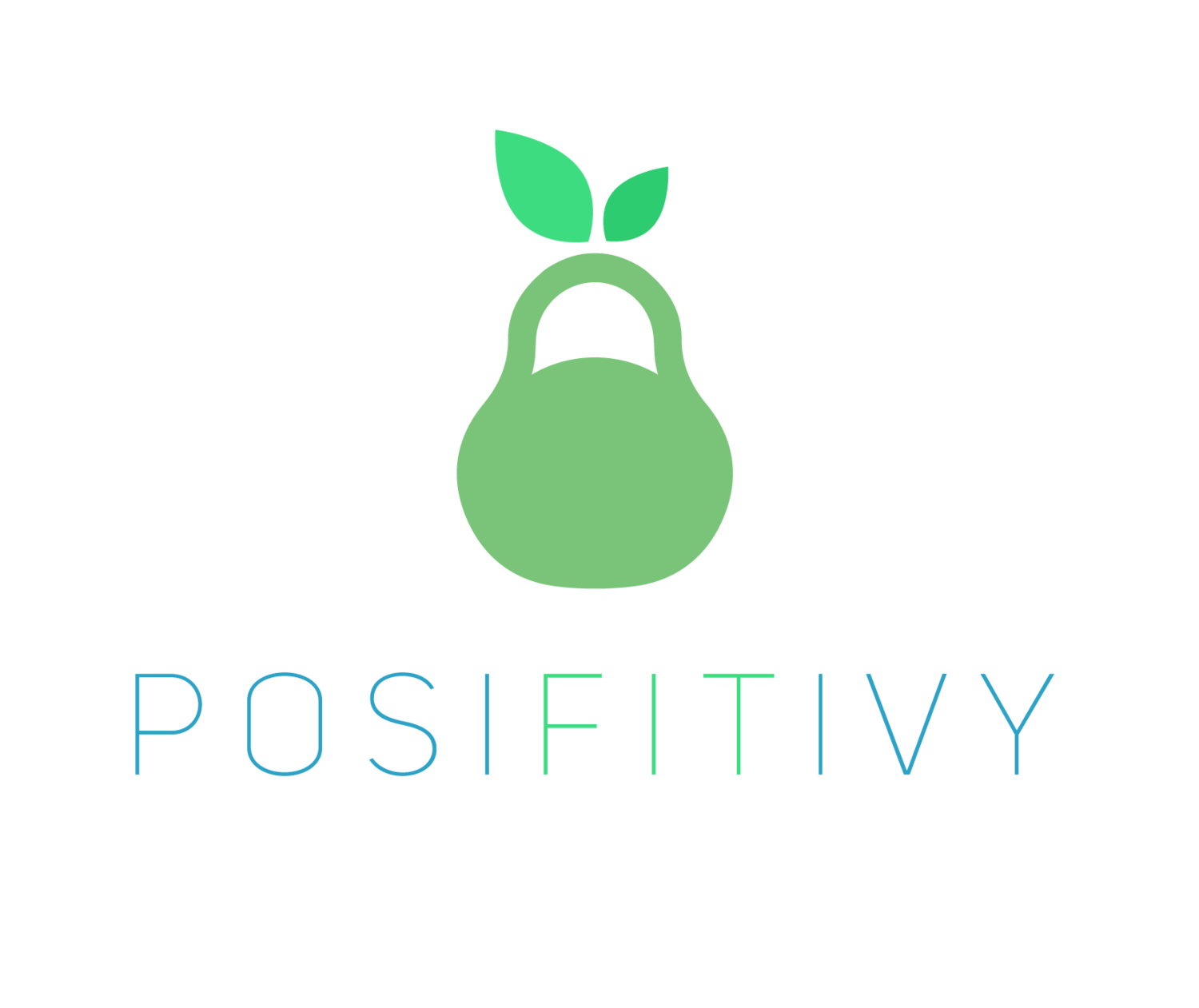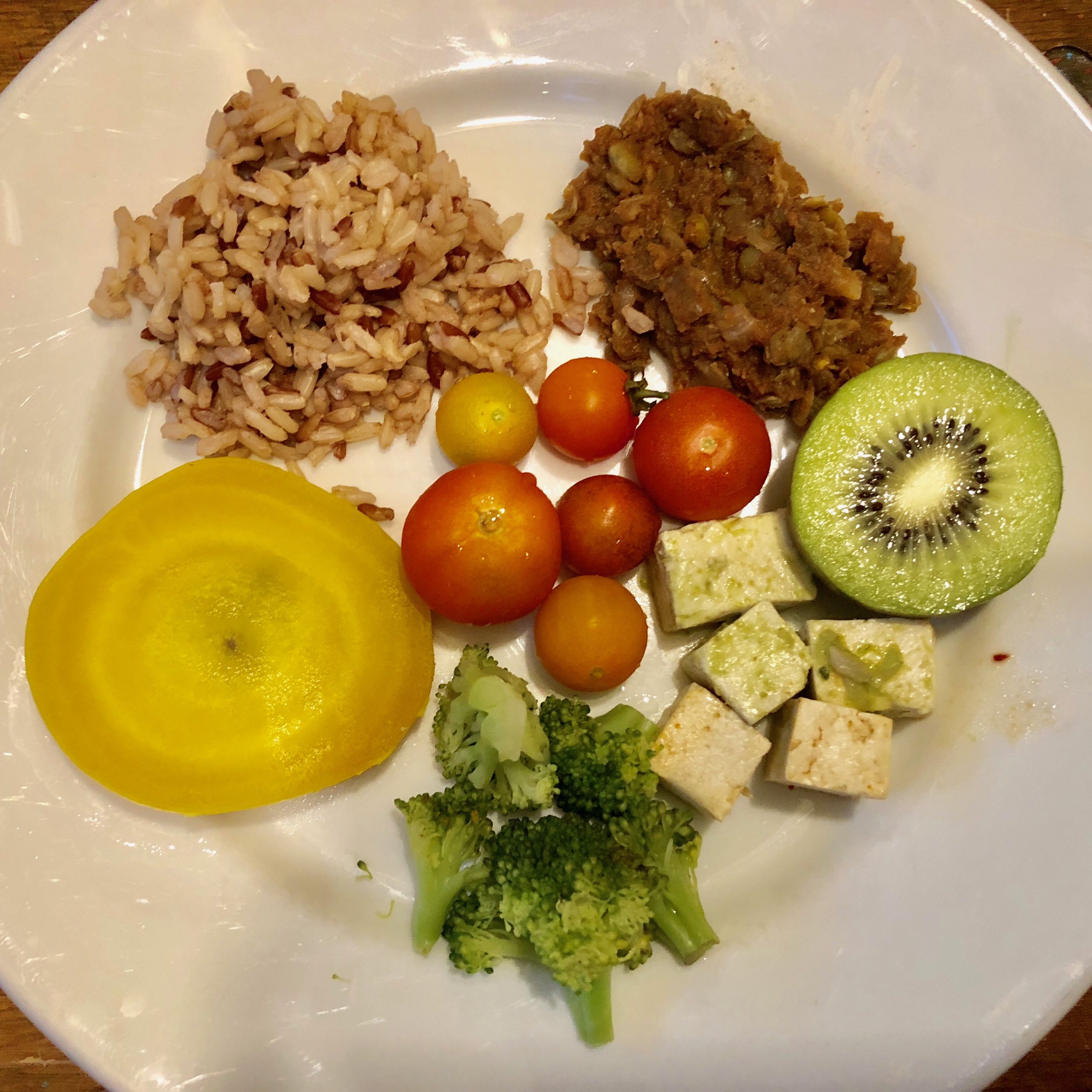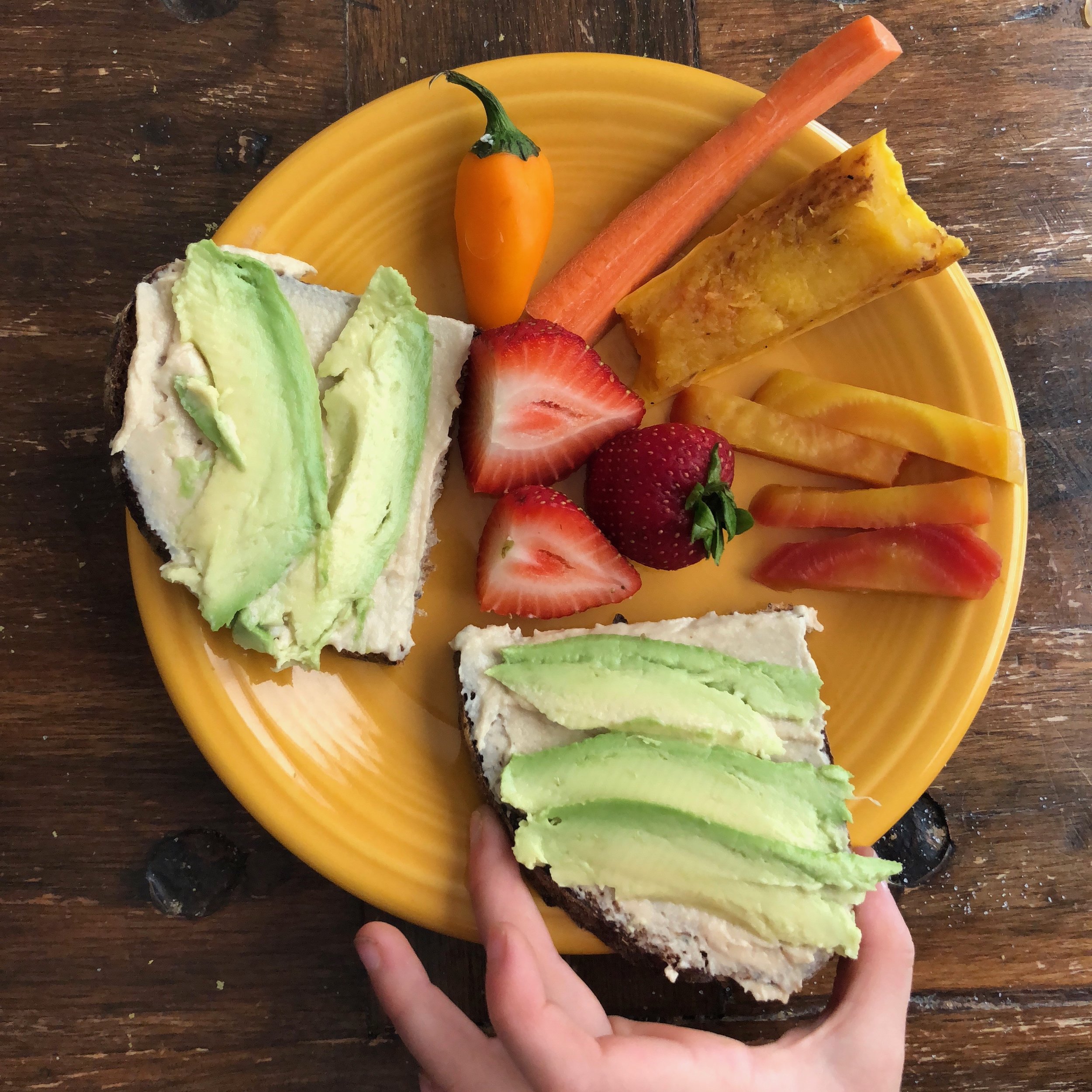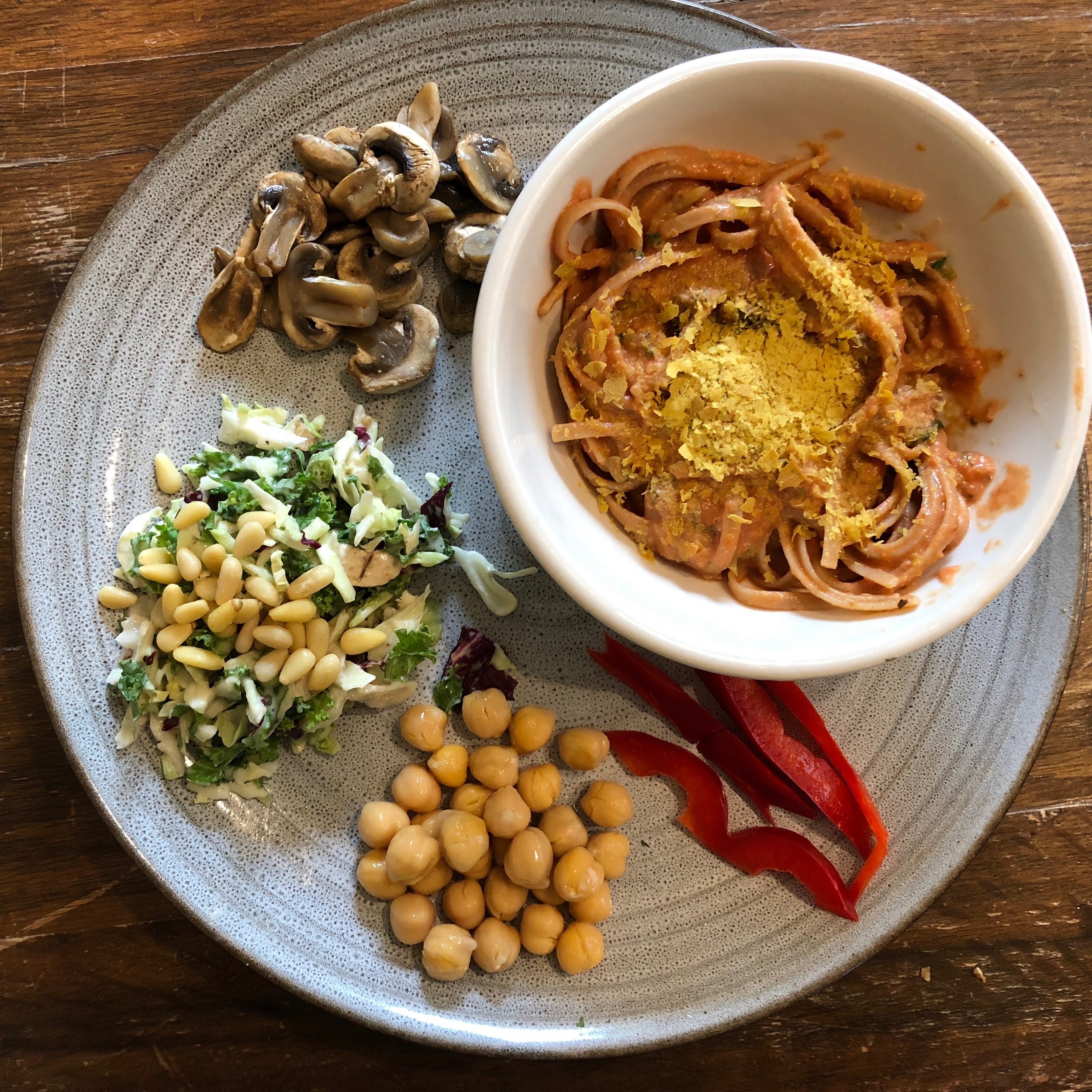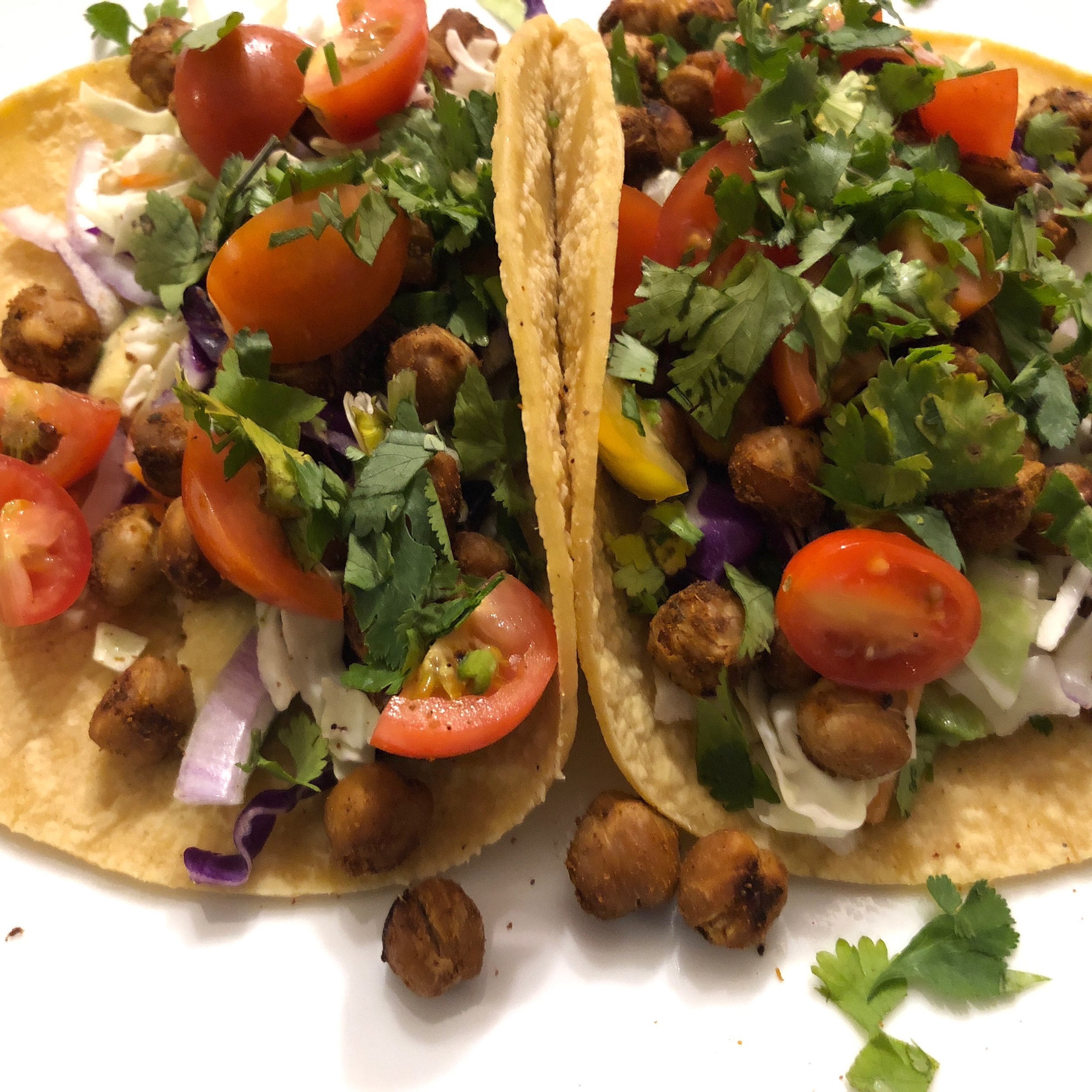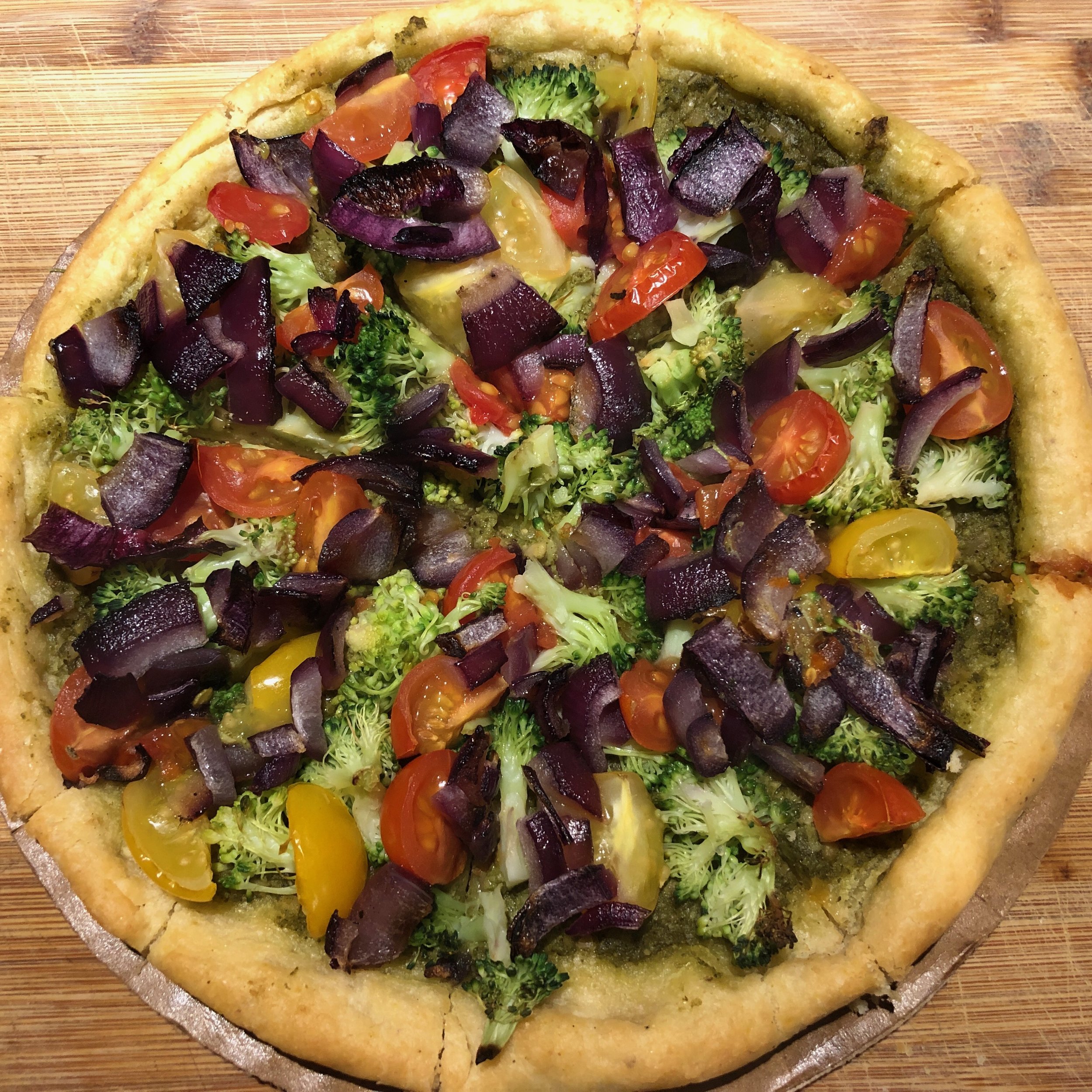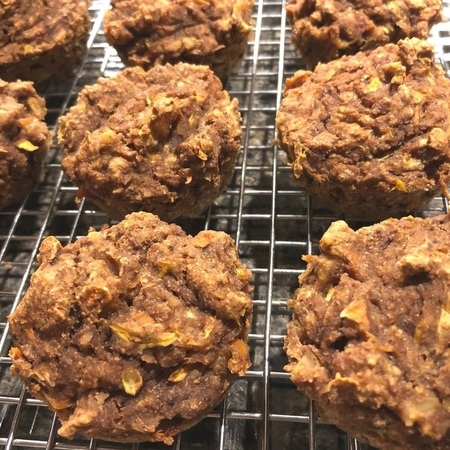plant-based nutrition for kids: a conversation with pediatrician dr. jackie busse
My first introduction to Dr. Jackie Busse was at the International Plant-Based Nutrition Healthcare conference in 2018. She had taken charge of developing and offering a Pediatric Plant-Based Nutrition Quick Start Guide, and I was immediately impressed by her initiative. We subsequently followed each other on Instagram, and though I don’t have kids of my own, I loved what she had to share about being a pediatrician and her experience raising kids on a whole-food, plant-based diet! I learned a lot from interviewing her, and I know medical providers and moms alike will have something valuable to take away from her journey, insight, and knowledge.
Tell me about yourself and your journey. Why did you decide to become a pediatrician?
I remember being interested in lots of different things growing up, but there were several commonalities that ended up steering me to medicine. I loved math and science. I loved working with kids. I loved teaching. And I was pretty competitive and loved a good challenge. I didn’t know it at the time, but medicine, and pediatrics in particular, provides opportunity for all of those things. I think it’s the perfect job for me and I feel lucky to be able to do it.
I grew up In Wisconsin, raised on a pretty typical Standard American Diet. I attended the University of Wisconsin, Madison for both undergrad and medical school and then moved to Chicago and did my pediatric residency as well as a chief residency at Rush University Medical Center.
In 2010, shortly after moving to California with my husband, a friend gave us a copy of The China Study. We were so blown away by the evidence, we immediately cleaned out our kitchen and essentially went vegan overnight. We both lost weight, felt better, had more energy and minor health problems like allergies and heartburn improved as well.
Over the next few years, I dove into the literature and read everything I could get my hands on. We slowly made a second transition (which felt nearly as big as the first!) from vegan to whole-food, plant-based. We stopped eating vegan junk food, stopped cooking with oil and focused more on what we were eating as opposed to what we weren’t eating.
Going whole-food plant-based, we gained even more health benefits. I got completely off the antacids I had been on for over ten years. My husband got off both of his blood pressure medications. We both had more energy, better sleep, better skin, lost more weight, etc.
Once I was really comfortable with whole-food, plant-based nutrition in my own life, I knew I had to start teaching patients on a larger scale. I joined a colleague in running a whole-food, plant-based appointment series in 2014 and we’ve been doing it ever since. It’s my favorite part of my work week! Each and every session, I get to watch people take back control of the health and their life. It’s awesome.
I had my daughter in 2014 and my son in 2016. I feel so lucky to have found this lifestyle before having kids. They have been nearly 100% whole-food, plant-based since day one and are doing great. It’s been really fun to help people along this journey at the same time I’m going through it with my own family!
Why did plant-based nutrition resonate with you?
The China Study and everything I’ve read and learned since just makes so much sense, intuitively and scientifically. All the confusion that seems to perpetually surround the conversation of nutrition has just faded away. It was seriously like a lightbulb went on. We were meant to eat whole plant foods. Our bodies are built for it and we thrive on it.
Plus, it is the #1 most impactful solution to our healthcare crisis. Evidence suggests that about 80% of all disease could be prevented through lifestyle modification - including sleep, exercise, stress reduction, healthy relationships, avoidance of tobacco and alcohol and above all: plant-based nutrition. I had always been uncomfortable with the ‘crisis management’ style of western medicine but at the same time, I am leery of alternative medicine practices that are not evidence-based. With whole-food, plant-based nutrition, I had found an evidence-based approach to preventive health care that actually works, with minimal cost and essentially zero side effects. Bonus: it’s also a big part of the answer to our climate crisis and it is clearly the best choice for animal welfare. It’s a huge win on multiple fronts.
Why is it important that children eat a whole-food plant-based diet? Why it is personally important to you, as a mom?
As a pediatrician and a Mom, I feel strongly that what we feed our kids is one of the most important decisions we make for them. It affects their health for the rest of their lives! Plant-based nutrition is a great choice at any age, but there are a few reasons that, for me, make it an especially important choice for kids.
First, most of the chronic diseases we worry about in adults, including heart disease, cancer, obesity and diabetes, actually start in childhood. Studies show that the earliest signs of atherosclerosis can be seen in kids as young as three years old! By ten years old, pretty much all kids raised on a Standard American Diet have the beginnings of heart disease. So, if we’re serious about preventing heart disease (and all the other diseases attributable to endothelial damage), we need to start right from the beginning.
Second, what we eat during childhood affects our risk for diseases much later in life. In some cases, the risk conferred from unhealthy dietary choices early on can’t be fully undone even if we make good choices later. For example, obesity in childhood is associated with significantly higher rates of heart disease and some cancers, even if you lose the weight as an adult.
And lastly, feeding kids is not just about nutrition! We are teaching them about taste and culture. The food preferences they develop early on are likely to remain stable for life. Studies show that the foods kids prefer at two years old are largely the same at twenty years old! We have a huge opportunity and responsibility to make sure those early habits are healthy ones. It’s much harder to change our tastes later than get them right from the start.
What are some of the biggest nutrition-related issues you encounter in your patients?
I really empathize with families trying to navigate the world of nutrition that’s been built by our food and agriculture industries. It is often really difficult for patients to see through the marketing and recognize what foods are actually good for them! And that confusion is made worse by healthcare providers who very often give the same message. It’s hard knowing that we are failing patients in this way.
But I am invigorated every day that I get to help correct that message and clear up the confusion. Often, we start with the basics - just making that connection that what we eat and what we feed our kids affects our health! That, in many cases, the problems patients are coming in to the office with are related to food and can be dramatically improved, if not resolved, with a healthy diet. The most common things I see that are clearly diet-related are constipation, asthma, eczema, obesity and recurrent upper respiratory tract and ear infections.
The next step is clearing up what constitutes a healthy diet. Any step families can make towards a more plant-based diet is beneficial. Something as simple as changing the proportions on their plate to include less meat and more beans or starch will make a huge difference! Even just adding 1 serving of veggies each day has measurable health benefits. My first suggestion is often to stop drinking cow’s milk. We also talk about reading food labels and looking for foods that are unprocessed or at least less processed. We talk about focusing on the whole food and not the micro or macronutrients. It’s actually very simple when you get down to it - eat mostly plants, in their whole form, with minimal added fats or sweeteners. That’s it!
Could you share some of your favorite, kid-friendly whole-food, plant-based dinners and snacks?
I’m sure every busy parent out there can relate to the fact that the time between getting home from work/school and bedtime is a bit crazy! We rarely cook a whole meal from scratch and we rarely follow a recipe.
When I build a meal for my family, I follow this basic recipe: starch + veggies + flavor = entree. Then, add beans and greens wherever you can. Double check that you have some healthy fats, throw on some fresh fruit and you’re done!
Here’s what that might look like:
Starchy base: sometimes we’ll have a precooked whole grain in the fridge (brown rice, barley, wheat berries) or we’ll cook a fast one the night-of (whole grain pasta, quinoa, frozen corn, baked potato or squash).
Veggies: I always offer at least one, preferably 2-3 veggies every dinner. We play around with different cooking methods, seasonings and shapes. Fresh or frozen is fine!
Flavor: What flavor profile would complement the combo I’ve chosen from 1 and 2? Mexican? Italian? Indian? Am I going to do a sauce or dressing?
Beans and greens: easy to add to any combo or even just on the side. Pinto, black, kidney, garbanzo, green peas and tofu are some of our favorites.
Fat: I double check that I’ve included a healthy fat somewhere, usually in the form of avocado, whole nuts or seeds or a dressing or sauce. We don’t use oil at home and kids do need a little more fat in their diet than adults. Whole plant fats are the healthiest place to get what they need!
Fruit: Fresh or frozen! We usually put one serving on their plate and allow seconds (they always ask!) once they’ve at least tried all the other foods offered.
Snacks are always a no-cook situation! We often do a seedy, whole-grain cracker or slice of bread with hummus or nut butter and some raw veggies and fruit. Trail mix is great for snacks on the go: dry cereal, dried fruit, nuts/seeds.
A few meals in frequent rotation at our house include veggie burritos or tacos, pasta, risotto and veggie soup.
How can parents navigate the challenges of getting their children to eat healthy food that they may not enjoy having?
This is such a hard question and literally deserves an entire book to answer! We did write a whole chapter on it in the Pediatric Quick Start Guide that came out recently from the Plantrician Project. Also check out these two books: First Bite: How We Learn to Eat by Bee Wilson and It's Not About the Broccoli: Three Habits to Teach Your Kids for a Lifetime of Healthy Eating by Dina Rose.
That said, there are a few big, overarching principles that should form the foundation of a healthy household.
Only bring foods into the house that you want kids to eat. Keep the unhealthy treats for special occasions outside the house.
Model healthy eating. You can’t ask kids to eat differently than you are. Change often has to start with parents.
Get them involved. Kids who take part in the planning, shopping, gardening, prepping or cooking are much more likely to eat the food.
What's your vision for the future of medicine and healthcare, specifically for children?
Lifestyle medicine, and plant-based nutrition in particular, needs to be the foundation of primary care. Primary care should be much more about prevention and keeping people healthy instead of our current focus of disease management. Every doctor needs to be trained on the enormous impact of lifestyle choices and how to counsel patients to make and maintain those healthy choices.
We are on the right track! The American College of Lifestyle Medicine was founded in 2004 and has rapidly grown since. It is now a board-certified specialty. One of their missions is to expand nutrition education in medical schools and residency programs.
For kids (our future adults, leaders, teachers, doctors), I think the most effective strategy would be a broad one that encompasses healthcare, childcare and big federal programs like the School Lunch Program and the Supplemental Food Program for Women, Infants and Children. If we could make whole-food, plant-based nutrition the standard of care across all of those settings, we would fix our healthcare crisis and, at the same time, raise a whole generation with built-in healthy eating habits.
jackie’s super easy, kid-friendly veggie muffin recipe
1 1/2 c whole wheat flour
1 tsp baking soda
1 tsp salt
2 tsp baking powder
1 tsp cinnamon
1/2 tsp ground cloves
1 tsp allspice
1/3 c date sugar
1 1/2 c unsweetened applesauce
1 tsp vanilla
1 1/2 large carrot, grated
1 c finely chopped kale
3/4 c chopped walnuts
Mix all dry ingredients in a large mixing bowl.
Add applesauce and vanilla and mix until just combined.
Add veggies and nuts and combine again.
Scoop evenly into a mini muffin tin. Bake on 350 x 20-22 min. Enjoy!
